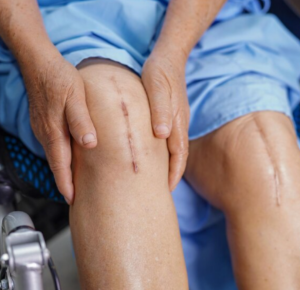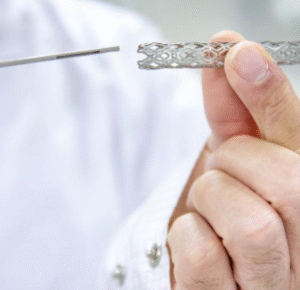
Sunburn is a common issue that many people face after spending time in the sun without proper protection. Whether you’re spending a day at the beach, hiking, or enjoying outdoor activities, sunburn can leave your skin red, irritated, and painful. Fortunately, there are numerous sunburn treatments available to help soothe your skin and promote healing. In this article, we’ll explore effective remedies, prevention tips, and what you can do to relieve discomfort and speed up recovery.
What Is Sunburn?
Sunburn occurs when your skin is overexposed to ultraviolet (UV) radiation from the sun. UV rays damage the DNA in your skin cells, leading to redness, inflammation, and pain. Sunburn can range from mild to severe, with symptoms including redness, swelling, blistering, and peeling. In more severe cases, sunburn can cause dehydration, chills, nausea, and fever.
While a slight sunburn may seem like a minor issue, repeated sunburns can lead to long-term skin damage, including premature aging and an increased risk of skin cancer. Therefore, it’s essential to take preventive measures and treat sunburns promptly.
Best Sunburn Treatments for Relief
- Cool Compresses
One of the first steps in treating sunburn is to cool the affected area. Apply a cool, damp washcloth to the sunburned skin for 10 to 15 minutes several times a day. This helps to reduce inflammation and provide immediate relief from the heat. Avoid using ice or very cold water, as extreme temperatures can further damage your skin.
- Aloe Vera
Aloe vera has been used for centuries as a natural remedy for sunburn treatments. Its cooling properties can help soothe inflamed skin, reduce redness, and promote healing. Aloe vera gel is readily available in stores, but for the best results, consider using fresh aloe vera directly from the plant.
To apply aloe vera, gently rub the gel onto the sunburned area and allow it to absorb. Reapply as needed throughout the day to keep your skin hydrated and to ease the burning sensation. Aloe vera not only helps to cool the skin but also contains compounds that aid in tissue repair.
- Moisturizing Lotions and Creams
Sunburn often causes dryness and peeling as your skin heals. To combat this, use a moisturizer that is free from alcohol and fragrances, as these can irritate sensitive skin. Look for products containing ingredients like shea butter, glycerin, or ceramides, which can lock in moisture and help your skin recover faster.
Additionally, some over-the-counter creams contain hydrocortisone, which can help reduce inflammation and relieve itching associated with sunburn. However, use these products sparingly and only as directed.
- Hydrocortisone Cream
For more severe sunburns that cause swelling, itching, or blistering, hydrocortisone cream can be a helpful remedy. This corticosteroid cream works by reducing inflammation and calming the skin. Apply a thin layer to the affected area twice a day for best results. Be cautious when using hydrocortisone on large areas of your body, as it can have side effects with prolonged use.
- Oatmeal Baths
An oatmeal bath is a soothing and natural way to relieve sunburn pain. Oats contain compounds called avenanthramides that have anti-inflammatory and antioxidant properties, making them perfect for calming irritated skin.
To prepare an oatmeal bath, add colloidal oatmeal (finely ground oatmeal) to lukewarm water. Soak in the bath for about 15 to 20 minutes to help relieve itching and discomfort. Afterward, gently pat your skin dry with a soft towel and apply a moisturizer to lock in hydration.
- Coconut Oil
Coconut oil is another natural ingredient that can be used as part of sunburn treatments. It contains essential fatty acids that moisturize the skin and promote healing. Some studies suggest that coconut oil can also reduce inflammation and improve the skin’s barrier function.
To use coconut oil, gently massage a small amount into the affected area once your skin has cooled down. Avoid applying it to broken or blistered skin, as it could cause irritation. If you’re prone to acne, be cautious, as coconut oil may clog pores for some individuals.
- Hydrate, Hydrate, Hydrate
Sunburn can cause dehydration, so it’s essential to drink plenty of fluids to help your body recover. Water is the best option, but you can also consume electrolyte-rich drinks like coconut water or sports drinks to replenish lost fluids. Staying hydrated will help keep your skin moisturized from the inside out and aid in the healing process.
- Over-the-Counter Pain Relievers
If your sunburn is causing significant pain or discomfort, over-the-counter pain relievers like ibuprofen or aspirin can help reduce pain and inflammation. Always follow the recommended dosage and consult with a healthcare provider if you have any concerns.
- Stay Out of the Sun
While your skin is healing from a sunburn, it’s essential to stay out of the sun. Exposure to UV rays can cause further damage and delay the healing process. If you must go outside, wear protective clothing, a wide-brimmed hat, and apply sunscreen regularly.
Sunburn Prevention Tips
While sunburn treatments can help soothe the skin after exposure, the best course of action is to prevent sunburns from occurring in the first place. Here are some tips to protect your skin from the sun’s harmful rays:
- Use Sunscreen: Apply broad-spectrum sunscreen with an SPF of at least 30 to all exposed skin. Reapply every two hours, and more often if swimming or sweating.
- Seek Shade: Whenever possible, stay in the shade during the peak hours of sun exposure, typically between 10 a.m. and 4 p.m.
- Wear Protective Clothing: Wear lightweight, long-sleeved shirts, pants, and a wide-brimmed hat to protect your skin from direct sunlight.
- Avoid Tanning Beds: Tanning beds also emit harmful UV radiation and can increase your risk of sunburn and skin cancer.
- Check the UV Index: Before going outside, check the UV index in your area. If the index is high, take extra precautions to protect your skin.
When to Seek Medical Attention
In most cases, sunburn treatments will help soothe your skin and promote healing within a few days. However, if your sunburn is severe or if you experience symptoms like blistering, fever, chills, nausea, or dizziness, it’s important to seek medical attention. Severe sunburns can sometimes lead to complications such as dehydration or infection, requiring professional care.
Conclusion
Sunburn can be painful, but with the right treatment and preventive measures, you can manage the discomfort and promote faster healing. From cooling compresses and aloe vera to moisturizing lotions and oatmeal baths, there are many effective sunburn treatments available. Just remember to stay hydrated, avoid further sun exposure, and take steps to protect your skin in the future.
By following these tips, you can minimize the risk of sunburn and keep your skin healthy and protected all year round. Always practice sun safety, and if you do experience a sunburn, use these treatments to help soothe and repair your skin.



